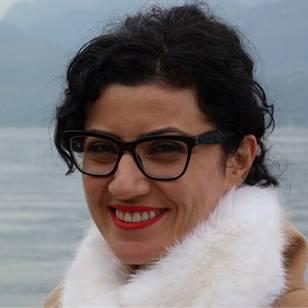Committing to lifelong learning: A spotlight interview with Nver Sargsyan
Nver Sargsyan is a seasoned United Nations (UN) professional with a remarkable career with the International Labour organization (ILO).
Fueled by a childhood dream, and through dedication and perseverance, Nver began his first UN assignment at the United Nations Development Programme (UNDP) office in Armenia back in 2003. Since then, he has spent almost 10 years with ILO promoting decent work in Armenia.
In this spotlight Interview with Aida Ghazaryan, a Learning Portfolio Manager at UNSSC, Nver shares his career journey and the transformative impact of the UN Emerging Leaders e-Learning programme (UNEL-e) on his leadership skills.
Aida: Nver, please tell us a little bit about yourself and your career journey in the UN.
Nver: My career journey with the UN started as a childhood dream. I took small but firm steps to achieve it. I had to work hard and apply many times before my application got attention. My volunteer work with various international and national organizations helped me lay the foundation. Eventually I secured my first UN assignment with UNDP Armenia in 2003 as a Project Associate for the “Gender and Politics in the Southern Caucasus” project funded by Swedish International Development Agency.
My direct supervisor, Kristina Henschen, inspired me to move forward and shape my career as a UN professional. Working in the field of gender equality prepared me for the next UN assignments. I spent almost 10 years with ILO promoting decent work in Armenia. In 2011 when both projects were completed, I began another exciting journey with the UN Refugee Agency (UNHCR). UNHCR was quite different from all the UN agencies I have dealt with very unique, challenging, but still inspiring!
Aida: What prompted you to participate in the UNEL-e programme? Could you tell us what you found extraordinary about your learning experience in the programme?
Nver: Lifelong learning is my motto in life. I believe that, as long as I am breathing, I will continue to keep learning something new. We are all leaders to some extent. Leadership is not something you are born with – it is a skill to learn. We need to learn how to lead effectively and efficiently. So when I came across the UNEL e-learning programme, I thought to myself – this is it. I applied and I was among the luckiest ones to be nominated by ILO.
The UNEL e-Learning programme is indeed extraordinary. It is like nothing was left behind: the programme literally equips participants with leadership skills the contemporary world requires, especially when working in the UN context. The course enables participants to use the information provided to address challenges by turning them into opportunities.
Aida: You have seventeen years of experience in various international organizations including the UN. In what ways has this programme further enhanced your skills and expertise as a Project Director at the ILO?
Nver: Being a leader is not easy. Leading a team is a lot of responsibility. Sometimes we must learn to work with people that we have not selected or hired and still deliver. Every team needs to grow to be successful.
To deliver impactful results, a team leader must clearly explain to his team which direction the organization is headed in, what the target is, and how to reach it. This programme has taught me the importance of meaningful and effective engagement with my team, especially the professional growth of all team members and, the ownership and responsibility of the goals we are working to achieve.
Aida: How has the UNEL-e programme given you the confidence to become a transformational and emotionally intelligent UN leader?
Nver: It has given me the ability to recognize and appreciate emotions and to test them throughout various exercises and teamwork activities. I still have a long way to go… however, I feel confident that I can evolve. Emotional intelligence was the most memorable portion of the UNEL-e. New knowledge and critical skills to gain.
Aida: What are some of the challenges you have faced as a leader, and how has this training changed your perspective?
Nver: Having difficult conversations and managing difficult people has always been a personal challenge. The communication content in this course provided extremely useful learning. Though I have had many training sessions on communication, and also facilitated sessions, I realized I still have a lot to learn. The training provided new insights and most importantly solutions to deal with such issues.
Aida: What short message of inspiration would you leave to all UNEL-e alumni on the 10th year anniversary of the programme?
Nver: UNSSC’s UNEL-e programme is an important initiative that should be filtered down to other colleagues in the field. The possibility to participate in the programme should motivate those who have recently joined our big UN family. The materials shared during the training have become desk reading for me and a road map to a successful leadership post in my future.
As John F. Kennedy said: “Leadership and learning are indispensable to each other.”
